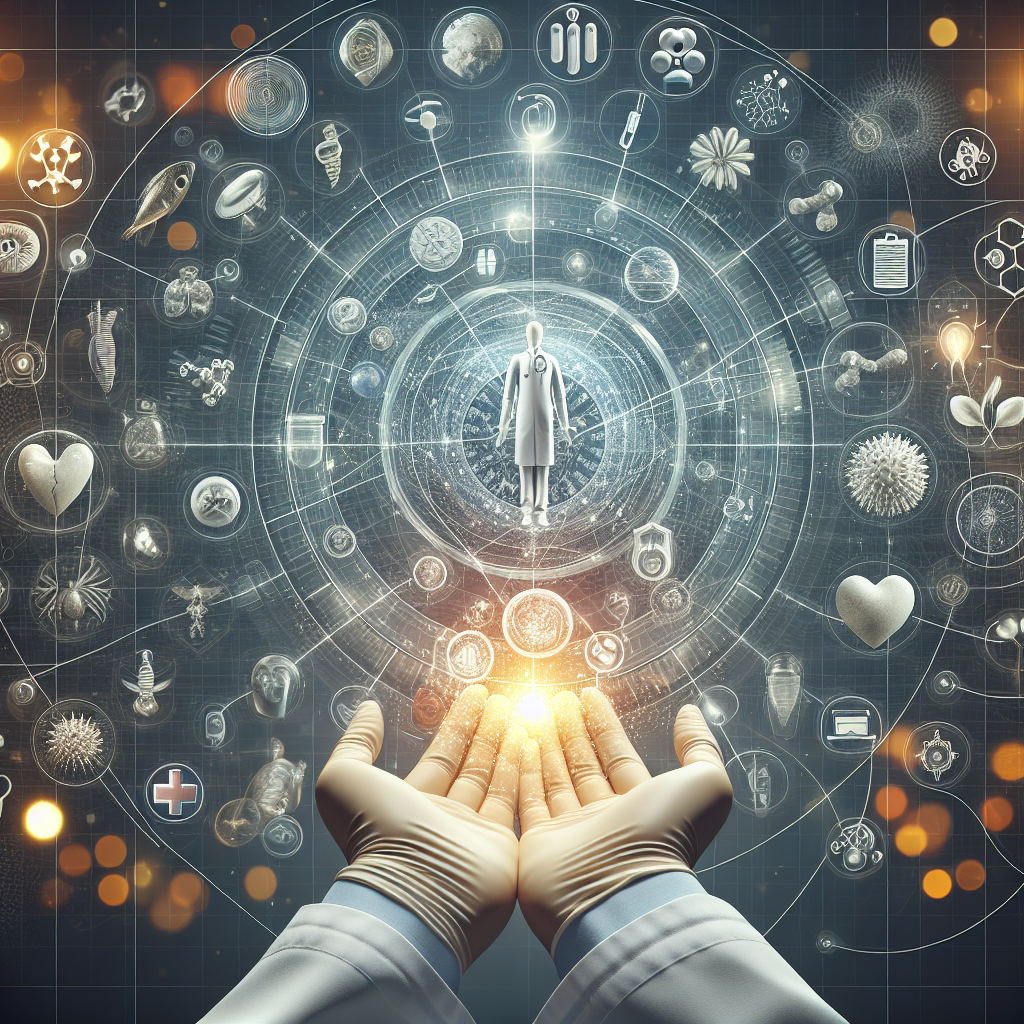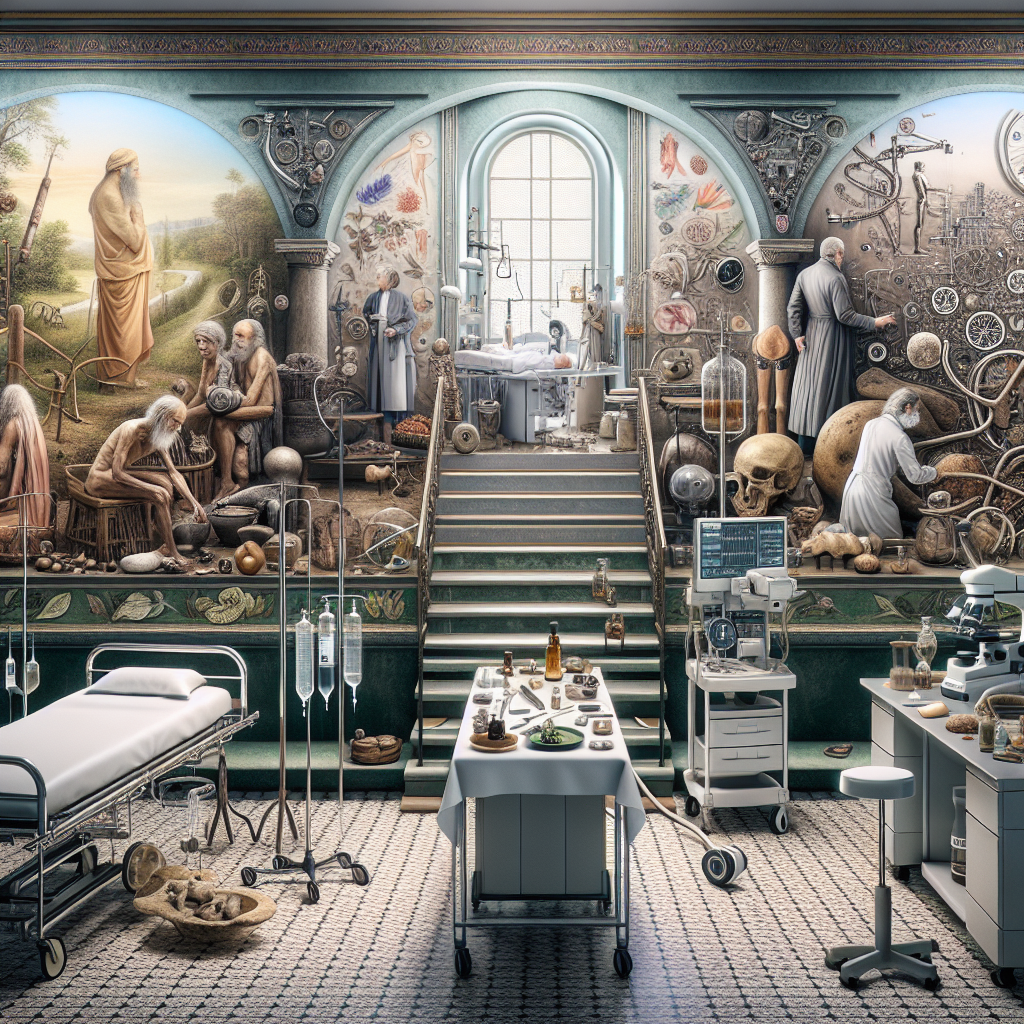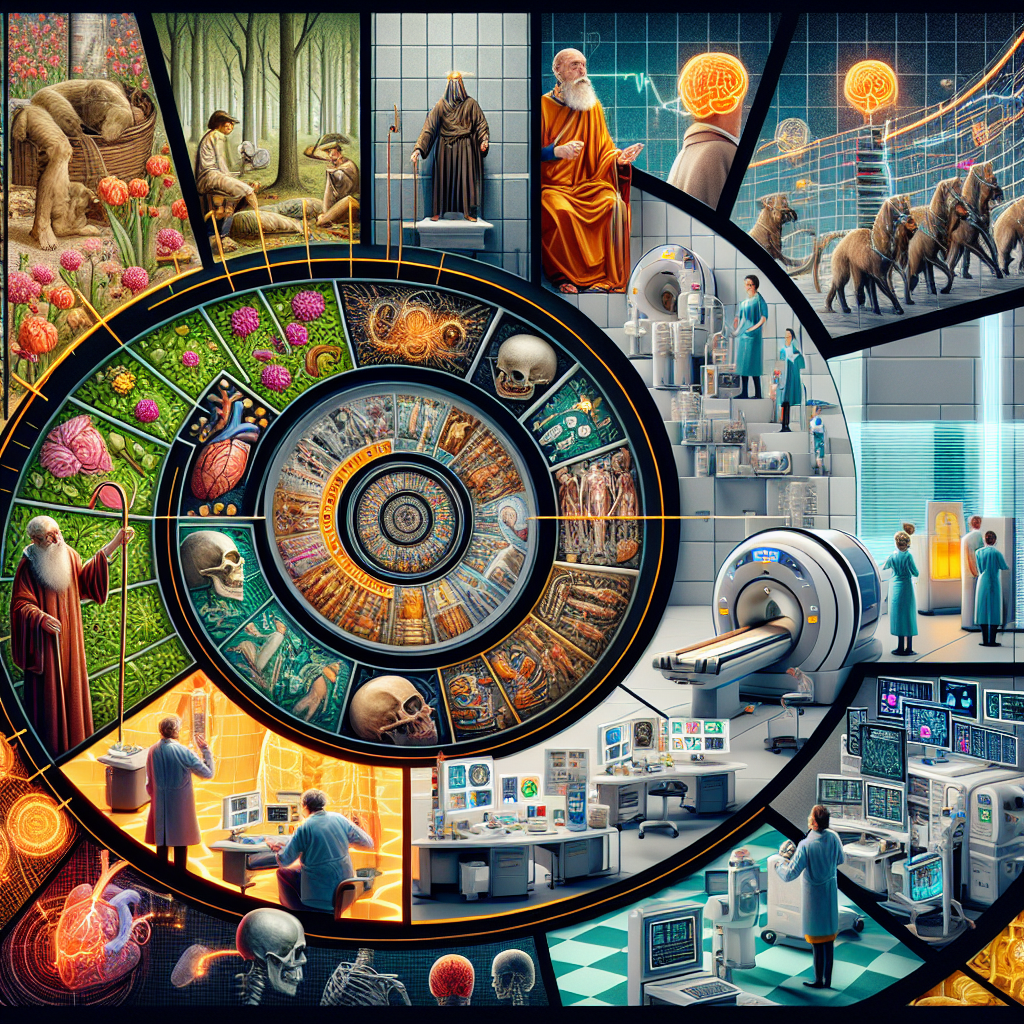The history of medicine and healthcare is a captivating tapestry woven with threads of human ingenuity, resilience, and compassion. From ancient civilizations to modern times, this journey through the annals of medical progress unveils a rich tapestry of groundbreaking discoveries and transformative innovations that have revolutionized the way we perceive and care for our health. It is a saga marked by the unwavering dedication of healers, physicians, and scientists who have relentlessly pursued the advancement of medical knowledge and healing practices.

Exploring the evolution of medicine and healthcare unveils a mosaic of triumphs and challenges, from the pioneering work of figures like Hippocrates and Florence Nightingale to the modern-day revolutions in precision medicine and telemedicine. Each era has brought forth its own set of medical breakthroughs and paradigm shifts, reshaping the landscape of healthcare and offering new hope and possibilities for patients worldwide.
By tracing the historical trajectory of medicine and healthcare, we gain a profound understanding of the interconnectedness between past, present, and future in the realm of healing. It is a narrative that celebrates human resilience, scientific curiosity, and the enduring quest for better health outcomes for all. Join us on this enlightening expedition as we uncover the hidden gems of medical history and honor the remarkable individuals whose contributions have paved the way for the modern healthcare landscape we inhabit today.
Ancient Beginnings

Medicine, with its humble beginnings, holds a fascinating history that stretches back to the ancient civilizations of Mesopotamia, Egypt, Greece, and China. In these early societies, healers played a crucial role in the community, utilizing a combination of herbal remedies, rituals, and spiritual practices to address a wide range of health issues. The ancient healers observed the natural world, experimented with different plants and substances, and developed a deep understanding of the human body and its connection to the environment.
Through a process of trial and error, these early practitioners gradually accumulated knowledge about the properties of various herbs, minerals, and other natural elements. They also incorporated spiritual beliefs into their healing practices, recognizing the interconnectedness of the physical, mental, and spiritual aspects of health. Over time, this accumulated wisdom was passed down from generation to generation, forming the basis of traditional medical systems that continue to influence modern healthcare practices.
As these ancient civilizations flourished, so did their medical knowledge. The Egyptians, for example, were renowned for their advanced understanding of anatomy and surgical techniques. The Greeks, inspired by the teachings of philosophers like Hippocrates, laid the groundwork for a more systematic approach to medicine based on observation and logic. Meanwhile, Chinese medicine evolved into a comprehensive system that emphasized the balance of energies within the body.
The Middle Ages and Renaissance

Throughout the Middle Ages, the landscape of medical practices was heavily influenced by a complex interplay of religious beliefs and superstitions. Monks and nuns, often revered for their spiritual dedication, also took on the crucial responsibility of caring for the sick within their communities. Their practices were deeply rooted in a blend of faith-based healing rituals and rudimentary medical knowledge that was passed down through generations.
The outbreak of the bubonic plague during this era brought about a significant shift in healthcare practices. The devastating impact of the plague forced medical practitioners to reevaluate their approaches, leading to the development of early forms of quarantine measures and attempts at public health interventions. Despite the pervasive fear and uncertainty that the plague instilled, it also catalyzed a gradual evolution in medical understanding and treatment methods. The dawn of the Renaissance marked a pivotal moment in the history of medicine, characterized by a resurgence of scientific inquiry and a newfound emphasis on empirical observation. Visionary figures like Leonardo da Vinci and Andreas Vesalius emerged as trailblazers in the field of anatomy, challenging traditional beliefs and revolutionizing the study of the human body. Their meticulous dissections and anatomical illustrations laid the foundation for modern anatomical knowledge and set the stage for a more systematic and evidence-based approach to medical science.
The Age of Enlightenment

During the Age of Enlightenment, a significant shift occurred in the field of medicine, marking a revolutionary period characterized by the prioritization of reason and empirical evidence over conventional wisdom. This era saw the emergence of notable figures such as Edward Jenner, whose groundbreaking work in developing the smallpox vaccine laid the foundation for contemporary immunization practices. Jenner's pioneering efforts not only saved countless lives but also demonstrated the power of scientific inquiry in combating infectious diseases.
Moreover, the establishment of medical schools and hospitals during this time played a crucial role in advancing the professionalization of medicine. These institutions not only provided structured education and training for aspiring physicians but also contributed to the dissemination of medical knowledge and the standardization of healthcare practices. The proliferation of medical schools and hospitals helped foster a new generation of skilled healthcare professionals who were equipped with the latest scientific knowledge and practical skills to deliver effective medical care.
Modern Medicine and Beyond
As we fast forward to the present day, medical advancements have reached unprecedented heights. From the discovery of antibiotics to groundbreaking surgical techniques and advancements in digital healthcare, the landscape of medicine and healthcare continues to evolve at a rapid pace.
The integration of technology, such as telemedicine and artificial intelligence, has transformed the way we deliver and receive healthcare services. Patients now have access to personalized treatment options, remote consultations, and digital health records, enhancing the quality and efficiency of healthcare delivery.
Conclusion
The history of medicine and healthcare is a testament to human resilience, innovation, and dedication to improving the well-being of individuals worldwide. As we reflect on the past, we are reminded of the tireless efforts of those who came before us and the immense possibilities that lie ahead in the field of healthcare.
Join us in celebrating the remarkable journey of medicine and healthcare, and let's continue to write the next chapter in this ever-evolving story of healing and hope.
Let's honor the past, embrace the present, and shape the future of healthcare together. The evolution continues, and the possibilities are endless.
Comments